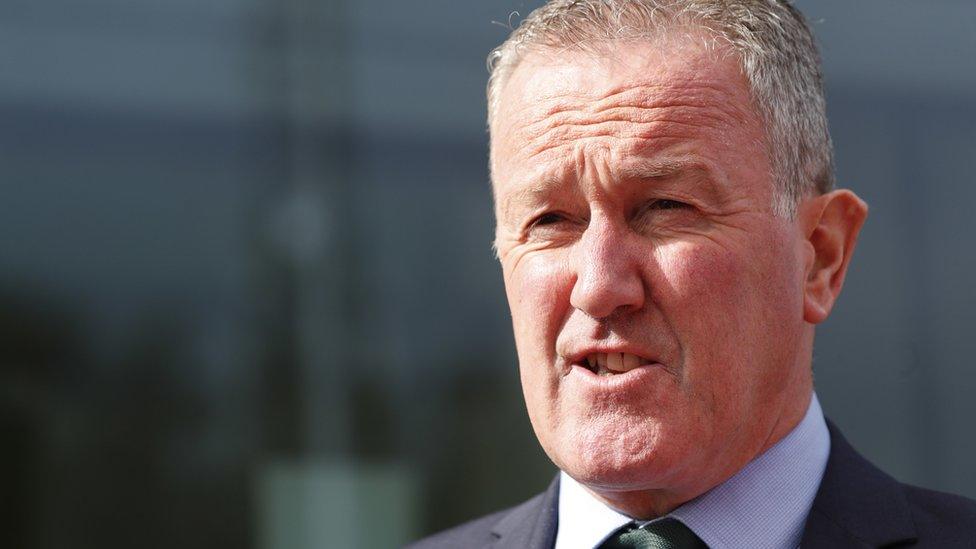Northern Ireland Stormont stalemate: When will we next go to the polls?
- Published
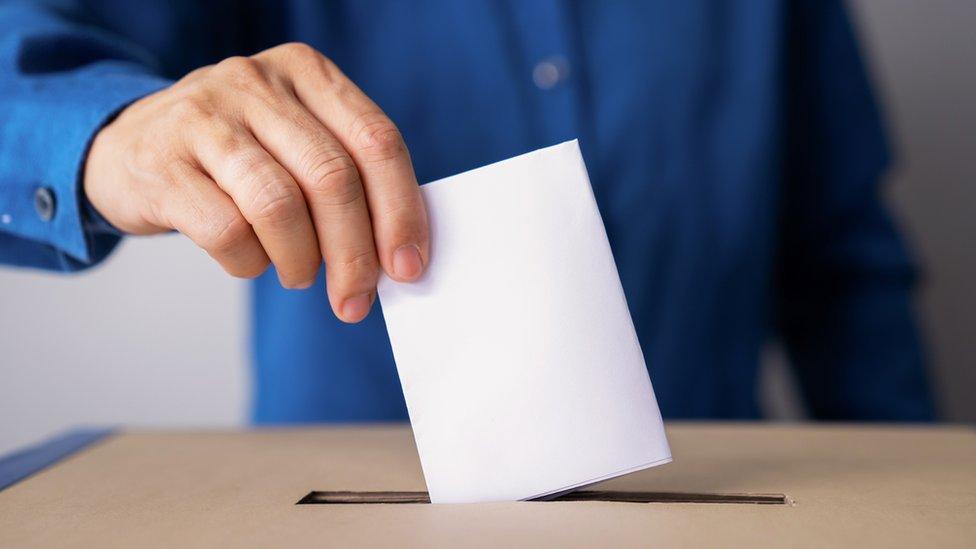
Voters in Northern Ireland avoided a 2022 return to the polls, after a period of uncertainty.
But with the deadline for restoring the Northern Ireland Executive ending on Thursday, 19 January, the question of when an assembly election will be called - not if - is once again being raised.
From midnight, Northern Ireland Secretary Chris Heaton-Harris will be obliged to call another election within the next 12 weeks.
The Democratic Unionist Party (DUP) is refusing to re-enter power-sharing because of the Northern Ireland Protocol.
Efforts to restore the Northern Ireland Assembly have already failed on five separate occasions at Stormont.
So what about another assembly election?
Chris Heaton-Harris is due to meet the Irish foreign minister in Dublin later, ahead of Thursday's deadline.
He could opt to delay a poll, as he has done previously via legislation at Westminster.
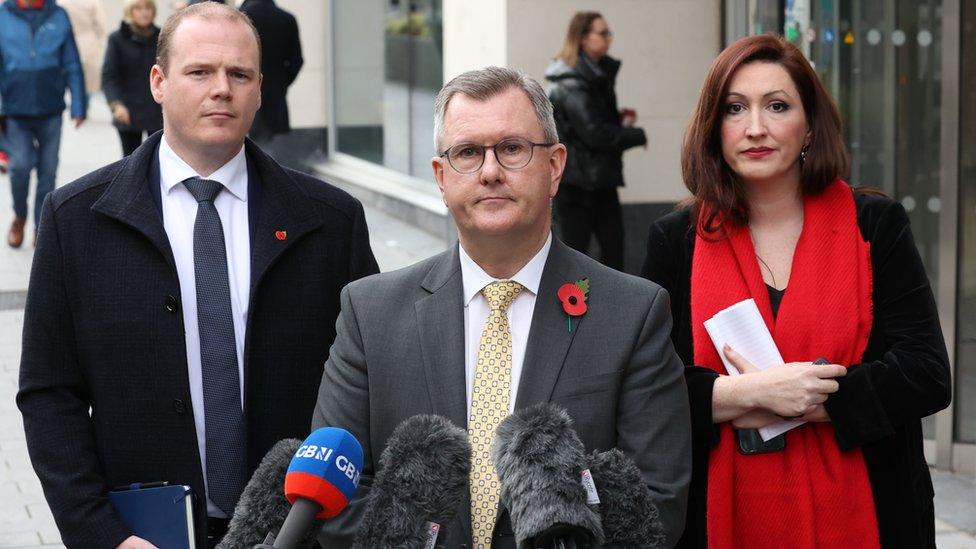
The DUP collapsed the executive in February and has blocked it from forming since May's assembly election
Currently, the latest an assembly poll can be held is 13 April 2023, meaning the government would need to announce a date for the election no later than early March.
After Mr Heaton-Harris decided not to call a Stormont election before Christmas, he introduced legislation to extend the deadline for reforming a power-sharing government.
It put in place two new dates: initially 8 December, with the option of a six-week extension until 19 January.
That extension was exercised and the new deadline has been reached, meaning Mr Heaton-Harris faces another decision.
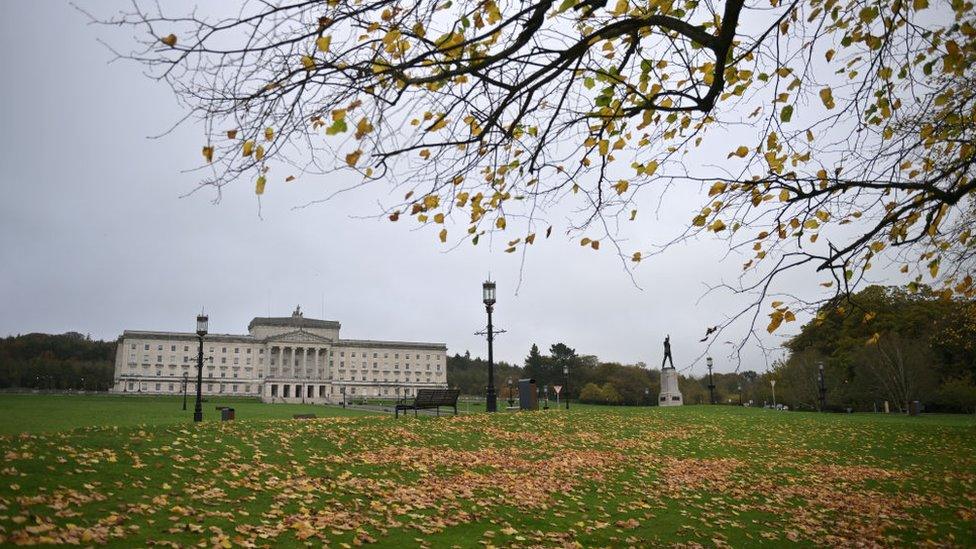
This year the law was changed at Westminster to buy more time for the executive to be formed in the event of an impasse after an election
Would he follow through with his legal duty to call a fresh election within 12 weeks, at the latest taking place on 13 April?
That seems an unlikely prospect, not least because it would fall just three days after the 25th anniversary of the Good Friday Agreement.
Events marking the anniversary are already being planned and there is the possibility of a visit to Northern Ireland by US President Joe Biden.
Will talks on the protocol affect the decision?
That is a certainty.
The government previously pushed back the prospect of a poll, in order to allow London and Brussels time to make progress on resolving the dispute over the Northern Ireland Protocol.
The DUP has stayed out of government since February last year in protest over the protocol, which is designed to ensure free trade across the Irish land border but has led to new checks on some goods between Great Britain and Northern Ireland.
There has in recent weeks been speculation that things are moving in the right direction, amid a UK-EU deal signed on sharing of trade data.
Mr Heaton-Harris has also been involved in the latest rounds of discussions with Foreign Secretary James Cleverly and EU negotiator Maroš Šefčovič.
Therefore it stands to reason that the secretary of state may, if he deems it necessary, opt for the scenario that buys the UK more time, rather than pressing the nuclear button on an assembly election any time soon.
There is also little appetite among the political parties in Northern Ireland to return to the polls, when they already face a local government election in May.
So when is the council election due?
Council elections in Northern Ireland take place every four years and the next one had been scheduled for Thursday, 4 May this year.
However, those elections have been rescheduled due to a clash with King Charles III's coronation in May.
The poll has been moved back by two weeks to Thursday, 18 May, with counting to begin the next day.
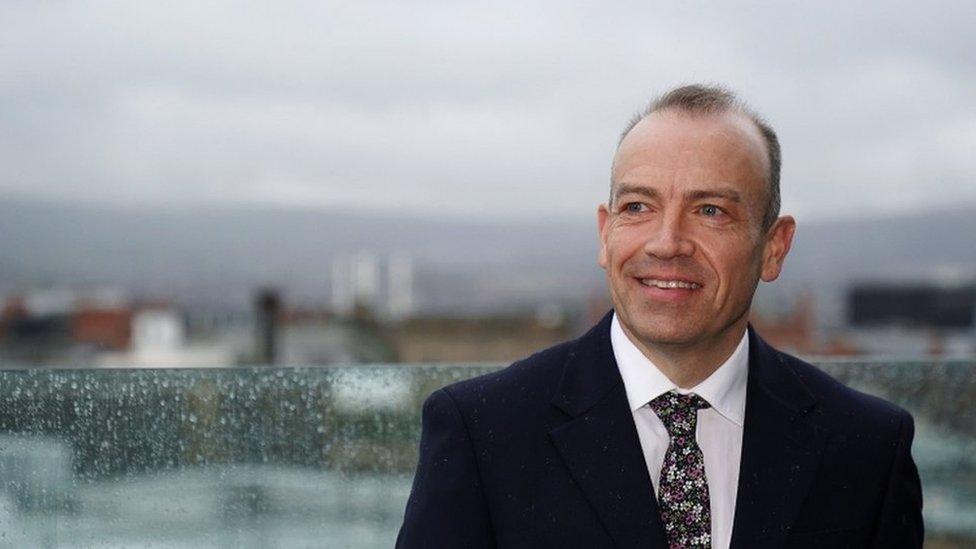
Northern Ireland Secretary Chris Heaton-Harris holds the power to decide when a fresh assembly election should take place
The process can take many hours as results are determined using the proportional representation system of Single Transferable Vote (STV).
Could two elections happen on the same day?
We can't rule it out but for now it appears there is little chance of that.
In 2014, council and European Parliament elections were held on the same day although counting of the results took place on separate days.
Carrying out similar plans this May would be less than ideal for electoral staff as they would have to manage two counts concurrently.
The prospect of 850 council candidates and more than 200 assembly runners canvassing at the same time could also prove challenging.
Amid more dates and deadlines likely to come our way, for now all we can do is watch this space.

Read more: Stormont crisis explained


Are you a Northern Ireland business owner being impacted by the political limbo? How would an election affect you? Share your experiences by emailing haveyoursay@bbc.co.uk, external
Please include a contact number if you are willing to speak to a BBC journalist. You can also get in touch in the following ways:
WhatsApp: +44 7756 165803
Tweet: @BBC_HaveYourSay, external
Please read our terms & conditions and privacy policy
If you are reading this page and can't see the form you will need to visit the mobile version of the BBC website to submit your question or comment or you can email us at HaveYourSay@bbc.co.uk, external. Please include your name, age and location with any submission.
- Published4 November 2022
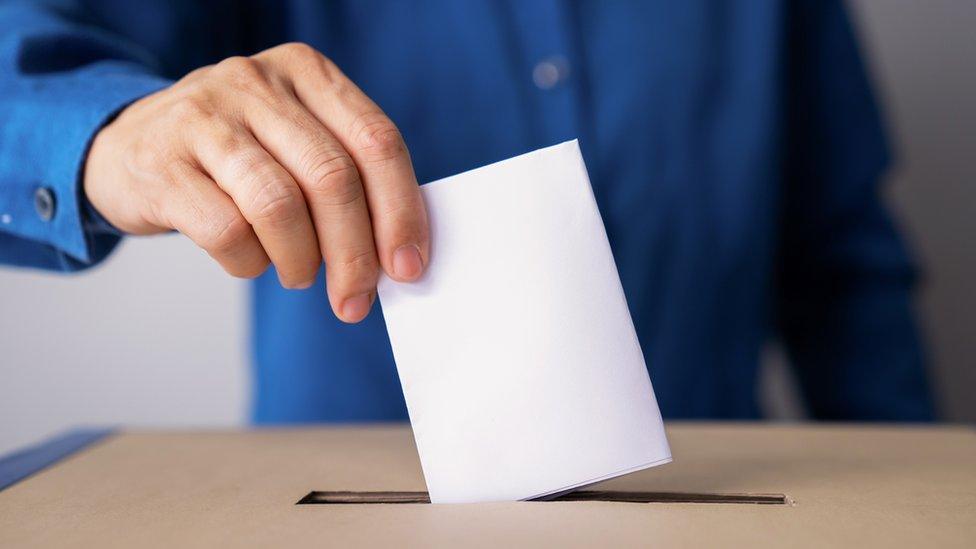
- Published8 May 2022
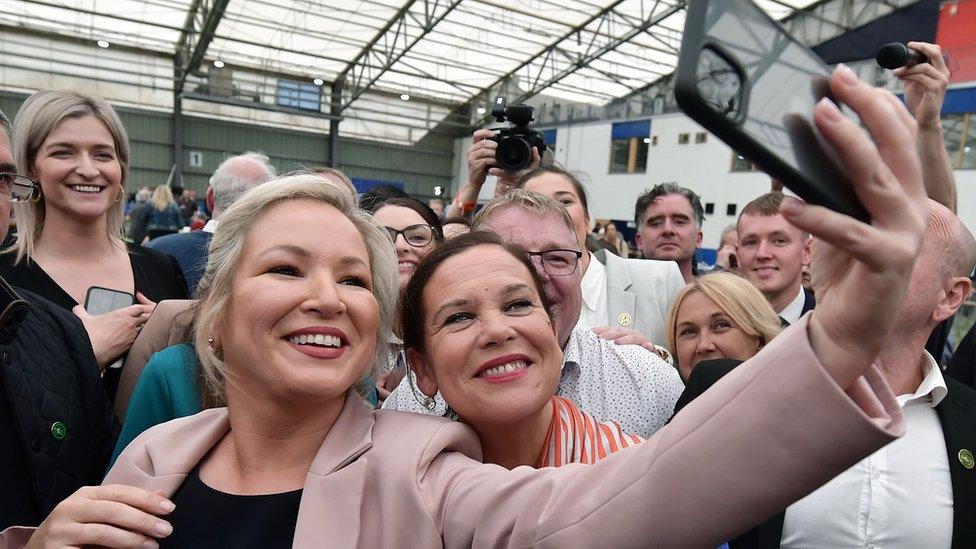
- Published20 October 2022

- Published11 October 2022
